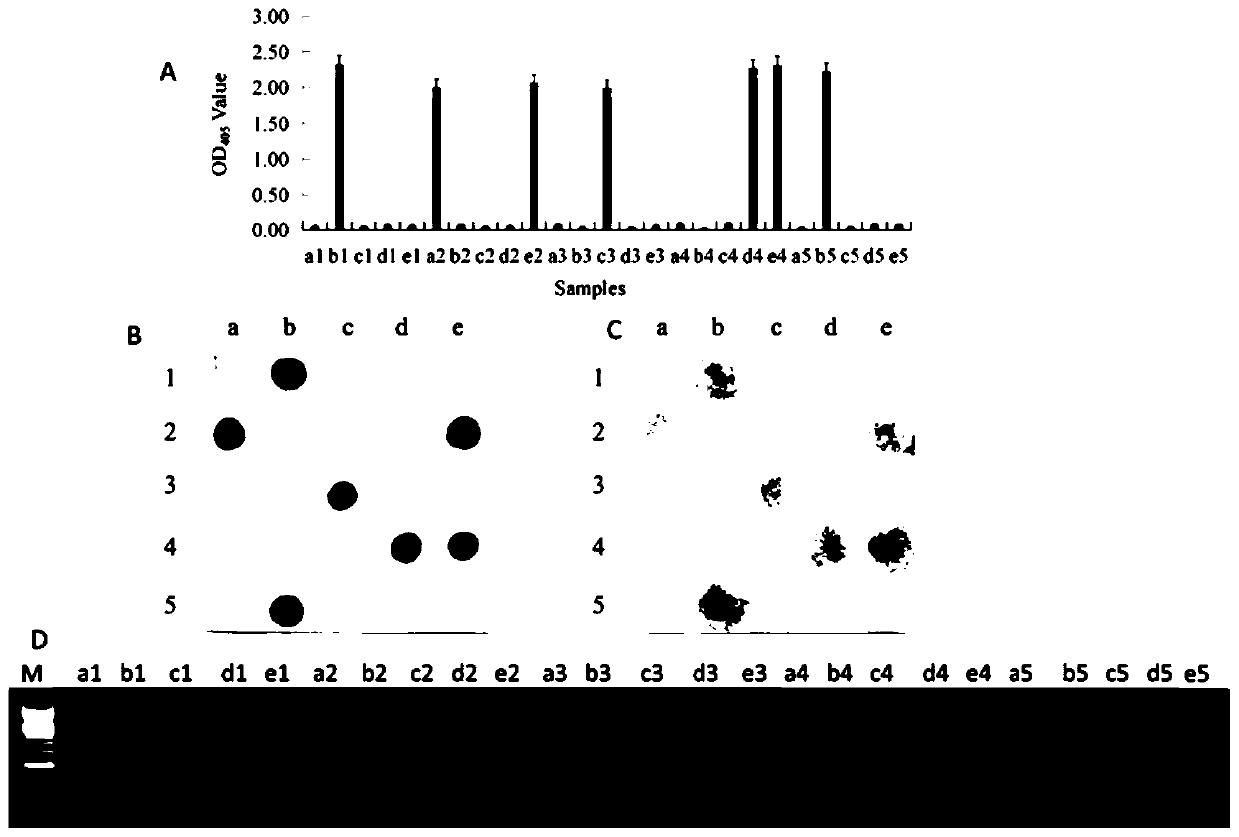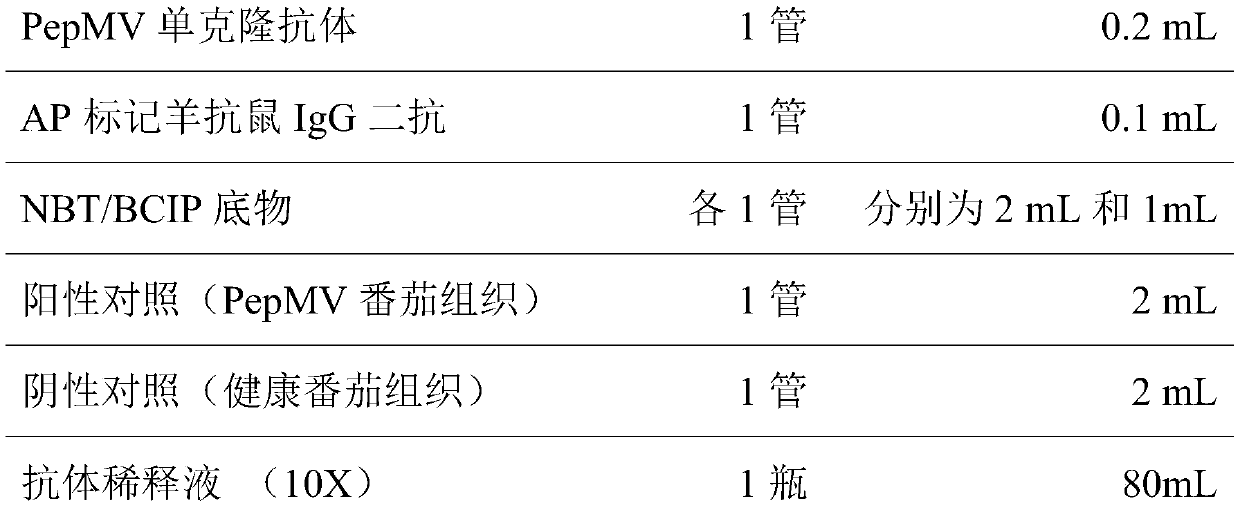Hybridoma cell strain capable of secreting anti-Pepino mosaic virus monoclonal antibody, and application of monoclonal antibody
A hybridoma cell line and leaf virus technology, applied in the application field of hybridoma cell line and its monoclonal antibody, to achieve the effect of low technical requirements
- Summary
- Abstract
- Description
- Claims
- Application Information
AI Technical Summary
Problems solved by technology
Method used
Image
Examples
Embodiment Construction
[0015] The hybridoma cell line 23D11 secreting phoenix mosaic virus monoclonal antibody was deposited on November 4, 2019 in the General Microbiology Center of the Chinese Microbiological Culture Collection Management Committee, Institute of Microbiology, Chinese Academy of Sciences. The preservation number is CGMCCNo.18845. It can secrete anti-phoenix Monoclonal antibody against fruit mosaic virus.
[0016] A kind of described hybridoma cell secretes anti-Pengo mosaic virus monoclonal antibody, and anti-Pengo mosaic virus monoclonal antibody ascites indirect ELISA titer reaches 10 -8 , the type and subclass of the antibody are IgG1, κ light chain, and have a specific immune reaction with the coat protein of PepMV 27kDa. Using this monoclonal antibody to establish ACP-ELISA and dot-ELISA methods to detect the roughness of infected tomato leaf tissue infected with PepMV The sensitivity of the extracts reached 1:40,960 and 1:20,480 times dilution (w / v, g / mL) respectively.
[00...
PUM
 Login to View More
Login to View More Abstract
Description
Claims
Application Information
 Login to View More
Login to View More - R&D
- Intellectual Property
- Life Sciences
- Materials
- Tech Scout
- Unparalleled Data Quality
- Higher Quality Content
- 60% Fewer Hallucinations
Browse by: Latest US Patents, China's latest patents, Technical Efficacy Thesaurus, Application Domain, Technology Topic, Popular Technical Reports.
© 2025 PatSnap. All rights reserved.Legal|Privacy policy|Modern Slavery Act Transparency Statement|Sitemap|About US| Contact US: help@patsnap.com



